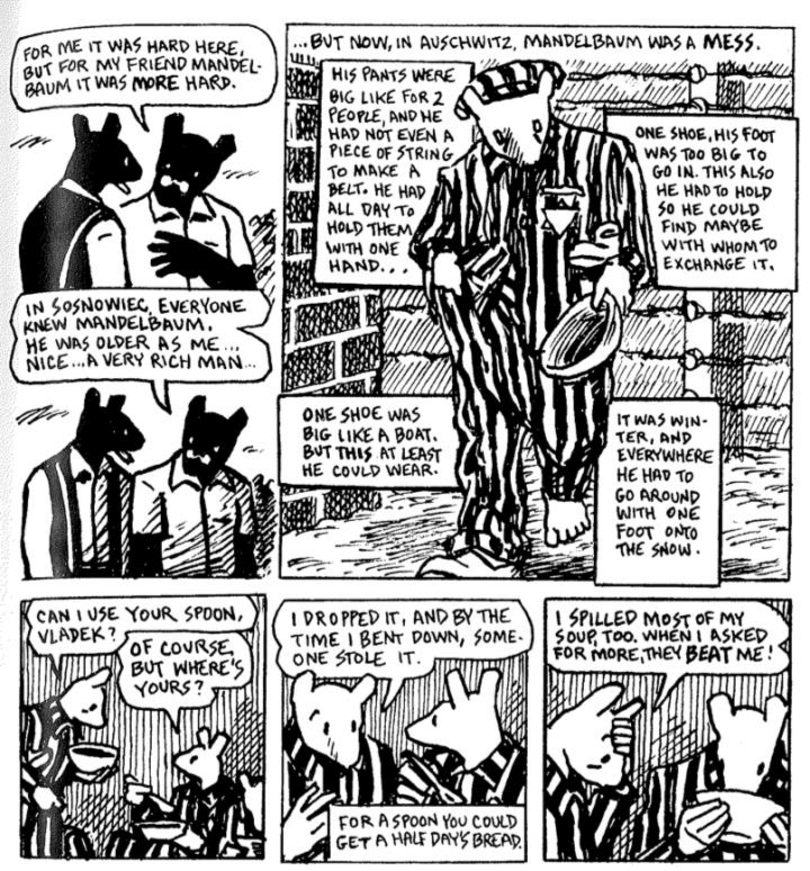
Reading both volumes of Maus by Art Spiegleman, it is easy to see why it was banned by the Tennessee school board, or generally less known by or assigned to American students than fictional Holocaust stories. Maus is the real account by a son of his father’s experience as a Jew during the Shoah, in a comic format. Spiegleman uses a cat-and-mouse analogy to describe the relationship between Nazis and Jews in his story — Jewish characters are drawn as mice, Germans as cats, and all other ethnicities are drawn as various different animals depending on their state of relation to Jews at the time. A more ignorant writer may have faltered in using such an analogy, ultimately cementing white supremacist beliefs on racial science, but Spiegleman does not do this. Rather, he is able to use the allegory to deftly critique the Nazi view of racial hierarchy, and to remind people of the historical hierarchy between Jews and the other ethnic groups. Maus is more dangerous than books like, say, the Boy in the Striped Pajamas, because it does not assert anti-semitism to be an idealogy of Bad Nazis that is opposed by Good Germans and Good Jews. Instead, it assigns Holocaust culpability to the whole of society at the time. Children in this novel, instead of being innocent angels, play anti-semitic games and attack those they suspect of being Jewish, while their mothers chuckle and deem it as kids being kids. The maid is hurt and offended in the beginning of the novel when Spiegleman’s parents generalize non-Jews as not being their allies, claiming that she loves them as her own family. Yet at the end of the novel, when his parents go into hiding to avoid being put in the concentration camps, and ask her to house them, she seems disappointed at their being alive and harshly refuses. Overall, Maus prosecutes everyone as being complicit in anti-semitism towards Jews: whether they are good people or not, or whether the Jews they are oppressing are good people or not. That is the essence of why it has been banned, and why it is crucial for future generations to read in understanding prejudice. The story does not cater to a non-Jewish audience that wants to whitewash Holocaust history into something that does not force them to grapple with their own morality.
By Teen Reviewer, Sreejita
